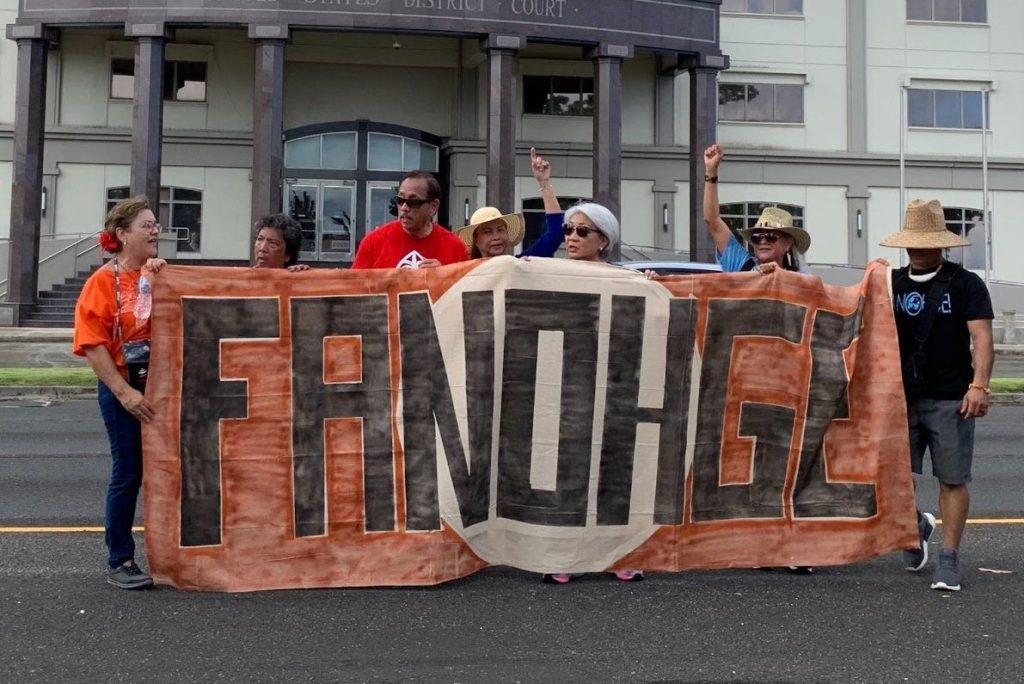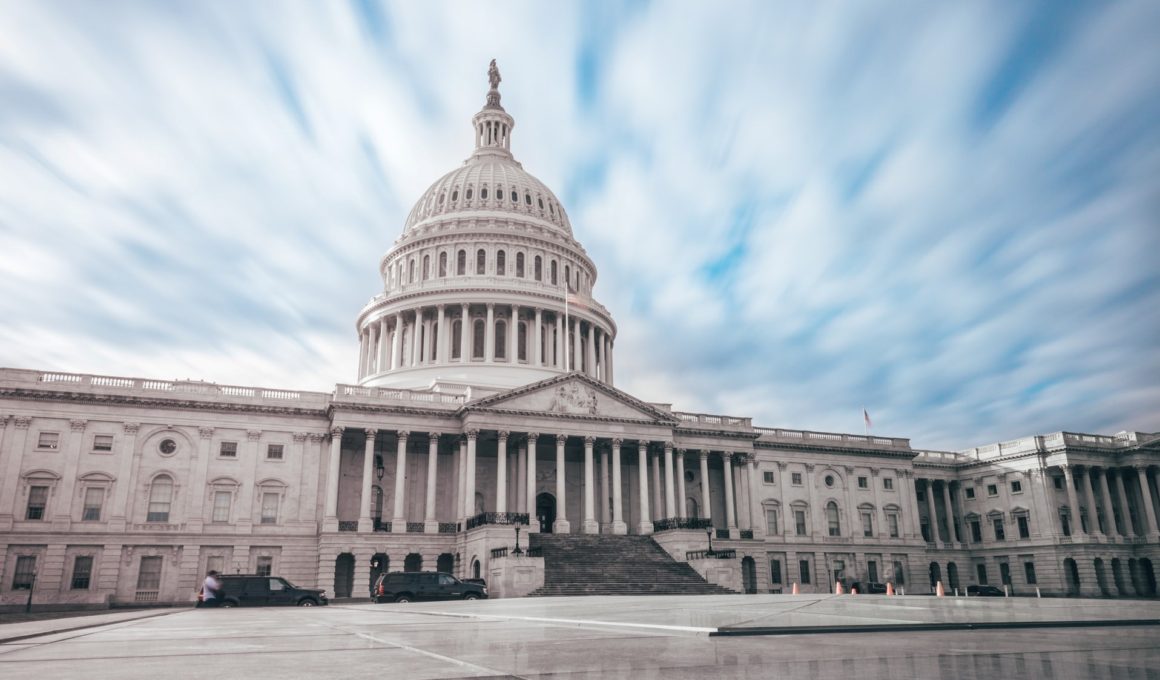Sign up here to receive The Yappie‘s weekly briefing on Asian American + Pacific Islander politics and support our work by making a donation.
Democrats on the House Committee on Natural Resources took aim at a series of U.S. Supreme Court rulings known as the Insular Cases late last month, describing precedents set by the legal decisions as “foreign in the domestic sense” and condemning “the territorial incorporation doctrine” for denying people of the U.S. territories federal funding and access to fundamental rights.
The Insular Cases—a series of high court decisions from the early 20th century involving governance of the territories—have emerged in the national spotlight in recent weeks, with congressional leaders pushing to denounce the century-old doctrines. The racially charged cases argue that certain aspects of the Constitution need not apply to people living in the territories because they are of “alien races.”
U.S. territories are home to thousands of Asian Americans and Pacific Islanders (AAPI). Between the five territories—Puerto Rico, the U.S. Virgin Islands, Guam, the Commonwealth of the Northern Marianas Islands (CNMI), and American Samoa—over 100,000 people identify as AAPI, according to the CIA’s World Factbook. To this day, they live with second-class status and no solution on the horizon due to the doctrine established by the Insular Cases.
Though the Supreme Court decisions are over a century old, they continue to heavily shape legal outcomes today. In 2015, the Obama administration cited Downes v. Bidwell, the case that originated the term “alien races,” in a brief opposing birthright citizenship for people born in American Samoa. Despite the case’s racist and prejudiced history, a D.C. Circuit panel agreed, ruling unanimously against American Samoans, according to Mother Jones.
The precedent set by the Insular Cases has also cast a shadow over the unincorporated territories and the people who live there, contributing to long-standing inequities. The territories have no representation in the U.S. Senate and their people cannot vote for the president of the United States, despite holding American citizenship. Several federal laws, such as the territories’ Organic Acts, explicitly restrict certain rights for people in the territories.
Even though federal courts have ruled that excluding territorial residents from federal programs is unconstitutional, the U.S. Department of Justice continues to appeal the decisions in attempts to uphold the doctrine, according to the House Democrats’ fact sheet.
Last month, lawmakers on the House’s natural resources committee debated H.R. 279, a resolution introduced by Rep. Raúl Grijalva (D-Arizona) to “acknowledge that the Insular Cases are relics of racial views of an earlier era that have no place in our nation today; and reject the Insular Cases and their application to all present and future cases.” The measure is sponsored by four out of the five territories’ representatives: Stacey Plaskett (D) of the U.S. Virgin Islands, Gregorio Kilili Camacho Sablan (I) of the CNMI, Michael San Nicolas (D) of Guam, and Jenniffer Aydin González (R) Colón of Puerto Rico.
“The resolution acknowledges these barriers to access as part of the harmful legacy of the Insular Cases and urges courts, the U.S. Department of Justice, and other litigants no longer to deny crucial services and benefits to residents of the territories, who should be entitled to these resources as U.S. citizens and U.S. nationals,” Grijalva said.


Rep. Raul Grijalva (D-Arizona), chair of the House Committee on Natural Resources. Photo courtesy of the National Museum of American History. 

Guam leaders pose in front of the U.S. District Court of Guam after the Fanohge March, a protest mobilizing hundreds after a federal court ruled against the Indigenous CHamorus right to a self-determination vote. Photo courtesy of Nolan Flores.
The territories’ representatives don’t have voting power in Congress, but merely raising the issue is having a domino effect.
Tina Rose Muña Barnes (D), vice speaker of the Guam legislature, introduced her own resolution in support of the House measure. Barnes’ resolution cleared the Guam Legislature by a slim 8-7 majority last week, and will be transmitted to Congress and appropriate federal authorities.
“I think it is imperative that the people of Guam express their sentiments on actions taken by Congress,” Muña Barnes told The Yappie. “This resolution supports the efforts of Chairman Grijalva and I believe it further supports our shared goal for parity for Americans in the territories.”
Opinion among young AAPIs varies, however.
RJ Solomon, a college student from the CNMI, sees “no benefit” in the Insular Cases. “The people of the territories are deemed as second-class citizens and forced to not only be drafted to a war that they most likely had no say in, but also pay taxes to a country that they have no full representation from,” Solomon said.
But rejecting the Insular Cases could affect American Samoa’s traditional land tenure, which restricts land ownership to those with Samoan ancestry, John Iosefo told The Yappie. Though the Indigenous American Samoan agreed that it’s important to reject racism, “I think the resolution would harm American Samoa’s long-term interest as it chips away at the autonomy that American Samoans for generations have fought to maintain.”
“I worry that this resolution might oversimplify the history of each of the territories,” Isosefo explained. “I’m not denying anything that’s in the resolution itself because they all happened, but I just think that, since Congress has ultimate authority over these lands and any action on their part could make a huge difference, it would be better for it to take a more individualized approach to righting historical wrongs. What works for Puerto Rico or Guam might not necessarily work for American Samoa.”
Many scholars who attended hearings on the resolution acknowledged that this is only one step of many. Congress has the plenary authority to enable rights for people living in the territories through the Territorial Clause of the U.S. Constitution, but congressional representatives from the territories don’t have the authority to enact this type of change. “The American model of territorial governance is both colonial and anti-democratic,” Rafeal Cox Alomar, a professor at the University of the District of Columbia who supports the House resolution, said at the hearing.
The Supreme Court is set to hear a case involving people with disabilities in Puerto Rico, which could have significant ramifications for a related federal district court case involving Guam residents. Guam’s Katrina Schaller sued the Social Security Administration in 2018 over Guam residents’ inability to access support payments under the SSI program. Despite his statements of support for the territories and Pacific Islanders, President Joe Biden’s Justice Department will defend the U.S. government in the Supreme Court case. Both rulings could have a significant impact on the status of protections for people in the territories.
As the House resolution moves through the legislative process, it signals a new movement, one that calls on America to confront its long-overlooked history of colonialism.









